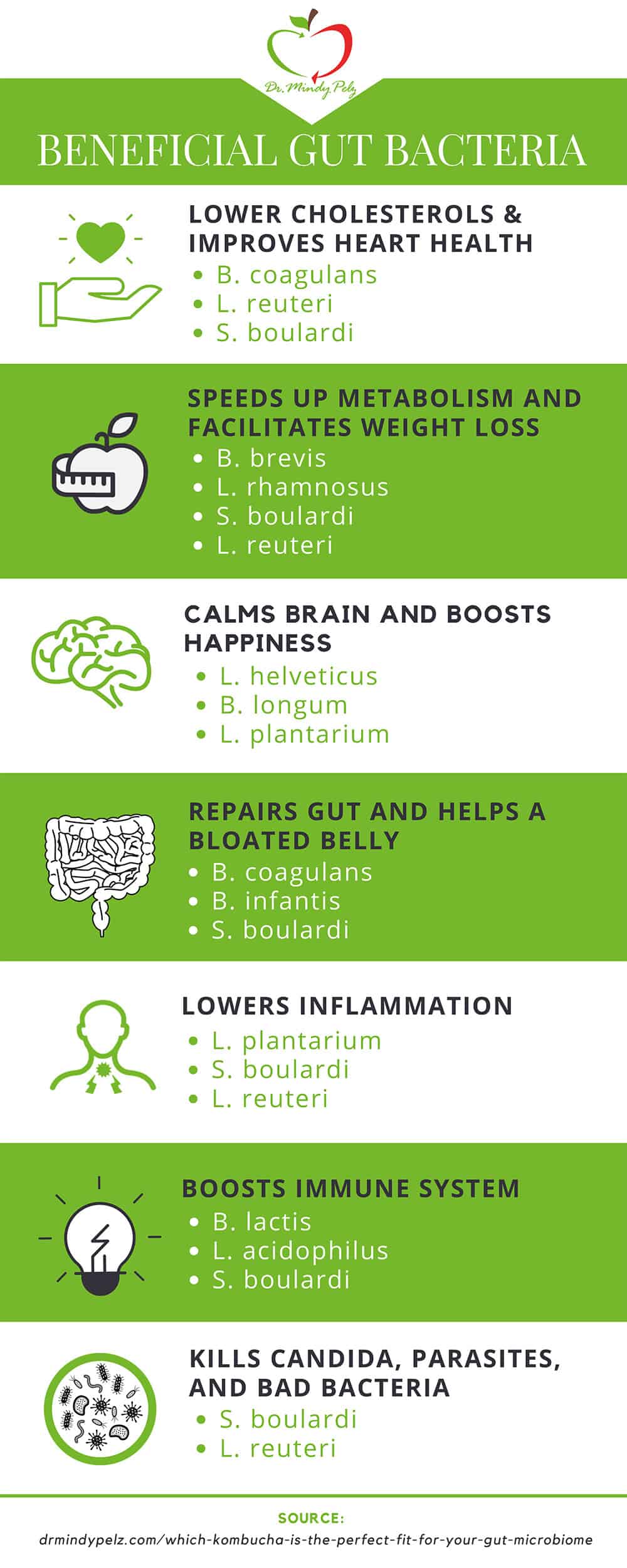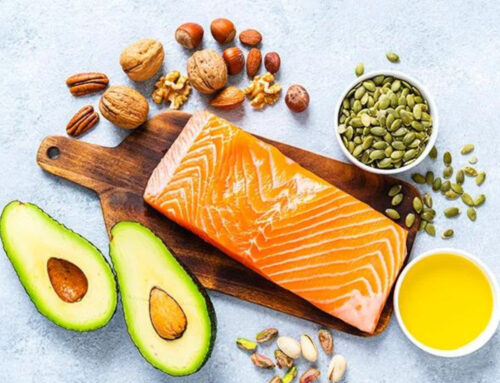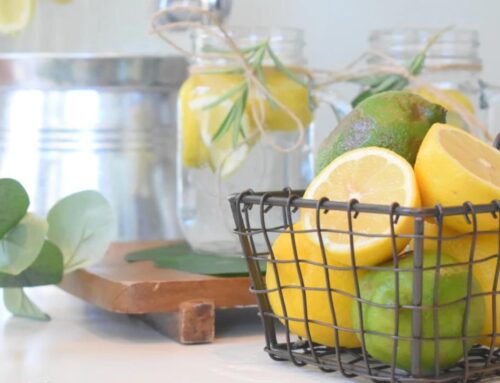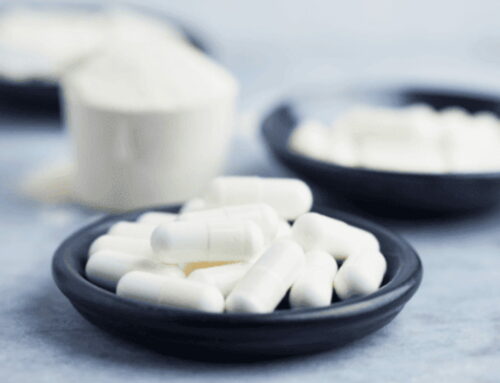Years ago, I had a running partner who was obsessed with kombucha. She swore by it and said it was the only thing that helped ensure that she had daily bowel movements. I can still remember trying it for the first time and thinking, “This is disgusting!” I wondered how my friend could stomach such a pungent drink.
Then, one day after a long run, this same friend pulled a bottle of kombucha out of her fridge and something funny happened: I felt a strange craving to drink it. It was like a calling or a signal coming from within, telling me that my body needed it. And, for whatever reason, when I drank it that day, I loved it.
I was curious about what had happened. Had my taste buds changed? And what had caused me to crave it?
After that day, I couldn’t get enough kombucha. I drank a bottle – sometimes two bottles! – a day. I became so obsessed with kombucha that I told my husband we were going to get a keg for our house so I could have kombucha on tap. It took a little convincing but my commitment to kombucha won … I got my keg!
I was seriously in love with this funny drink. Something about it made me happy, gave me energy, and often made my gut feel less bloated. This love affair went on for years.
Then, one day, something strange happened to me again: I stopped craving it. Literally overnight, this drink tasted disgusting to me again.
I was so confused. I had never experienced another food or drink that acted so mercurial!
So what happened? Why did this drink have such a crazy hold on my taste buds?
Well, it turns out our taste buds can be controlled by our gut bacteria. Candida is a great example of this. Sugar cravers often have a high prevalence of a fungus called Candida albicans in their gut. This fungus lives off sugar, so it sends a message to the brain to eat more sugar to keep it alive. You may think you were a born sugar addict, but it’s actually Candida that’s controlling you.
I see this happen with patients that I coach all the time. They tell me they have irrational cravings for foods they know are destroying their health. They can’t make the cravings stop. Yet once we identify what kind of gut imbalance they have and get them on a ketobiotic lifestyle, their irrational cravings go away.
This happens with beneficial gut bacteria as well. When your body needs more of some key bacteria, it can send signals to the brain to eat foods that will grow that bacteria.
I believe this is what happened to me with my kombucha cravings.
So, what exactly is kombucha? And why does it benefit us and improve our gut health?
Here are some interesting facts about kombucha you may not know:
1. It’s a low dose probiotic
Don’t count on your daily kombucha to make a huge difference in repairing your gut microbiome. Most kombuchas typically have 1 billion CFUs per cup. That is significantly lower than the weakest probiotic supplement.
However, even small daily doses can, over time, begin to change your microbiome. Moral of the story? If you crave it, drink it! And drink it as often as you’d like. Lower sugar kombuchas are best, so be sure to check the sugar content.
2. The health benefits go beyond the gut
Animal studies have proven that kombucha can:
- Regulate your blood sugar by slowing down the digestion of carbohydrates
- Reduce the absorption of cholesterol
- Decrease levels of certain liver enzymes
3. It has a detox effect
Kombucha contains glucuronic acid, a compound that binds to and facilitates the elimination of certain drugs and toxins in the body.
What about the good bacteria in kombucha? Which strains should you look for?
Each strain of bacteria in kombucha may have different effects on your body. Once you start to recognize these strains, you can pick the right kombucha for you based on which health benefit you’re pursuing.
Here are some of the more common bacteria you will find in kombucha and their benefits:
If you want to lower cholesterols or improve cardiovascular health, look for:
- B. coagulans
- L. reuteri
- S. boulardi
If you want to speed up metabolism and drop some weight, be sure to find kombucha with:
- B. brevis
- L. rhamnosus
- S. boulardi
- L. reuteri
Looking for a calmer brain and a boost of happiness? Here are the strains you’re looking for:
- L. helveticus
- B. longum
- L. plantarium
If you’re dealing with chronic gut issues including a bloated belly, diarrhea, Crohn’s, or IBS, try:
- B. coagulans
- B. infantis
- S. boulardi
Need an Immune boost? These are the strains you want to focus on:
- B. lactis
- L. acidophilus
- S. boulardi
Looking for an anti-inflammatory effect? These bacteria will do that for you:
- L. plantarium
- S. boulardi
- L. reuteri
If you want to combat bacterial, parasite, and fungal infections, look for:
- S. boulardi
- L. reuteri

How do you know which strain of bacteria you need the most?
There are two ways to find out what your gut needs: a) test or b) look at your symptoms.
Gut testing has come a long way in recent years. You can now do an at-home stool test, send it off to a lab, and it will tell you which bacteria you have too much of and which ones you need more of. In my clinic, I take those findings and match the right probiotic to meet the individualized needs of your gut microbiome.
The test I like best is called Gut Zoomer.
Another way to evaluate your bacterial needs is by your symptoms. Look at the list I created above and then seek out the probiotic-rich foods that have the specific strains of bacteria you are looking for.
One of my favorite kombuchas is GT’s Gingerade. I love it because it’s low in sugar and the ginger has a soothing effect on my stomach. It also contains B. coagulans and S.boulardi, which helps kill off any pathogens in my gut, has an anti-inflammatory effect on my body and boosts my immunity.
Other probiotic drinks like KeVita’s Sparkling Probiotic Drink- Mango Coconut Flavor contains Bacillus coagulans, L. rhamnosus, and L. plantarum bacteria. It will have a similar effect as GT’s Gingerade, but will also calm your brain and boost your happiness.
So, there you have it. Get to know these bacteria because they can serve you well.
If you’re looking to repair your gut on a deeper level, check out my 21-Day Ketobiotic Reset. You can get a free Quickstart Guide that walks you through exactly what you need to do to reset your gut in 21 days.
As always, I hope this helps. Reach out if you have any questions.









I wanted to extend my heartfelt thanks for the invaluable information you’ve provided. Your assistance has been truly impactful, and I deeply appreciate the time and effort you dedicate to helping others. Thank you.